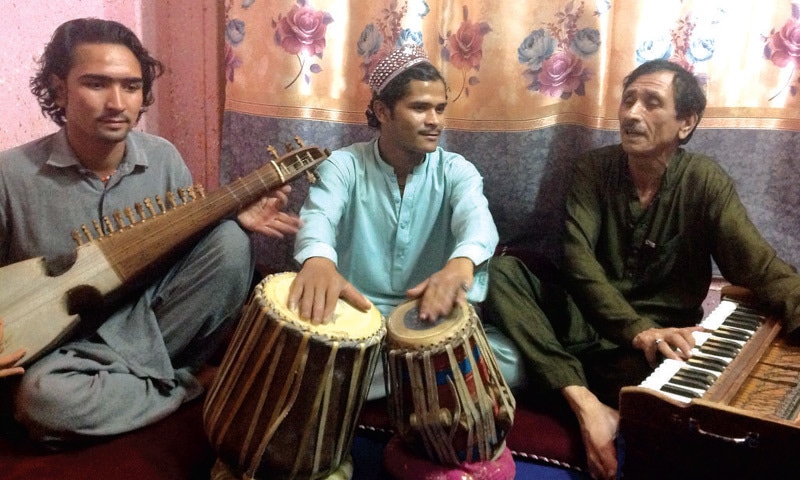Afghan artists have been granted a temporary reprieve from deportation by the Peshawar High Court. On Thursday, the court issued a stay order, halting the deportation of several Afghan artists and transgender individuals. The bench, comprising Justice Ijaz Anwar and Justice Wiqar Ahmad, declared that police and law-enforcement agencies should not take any “adverse action” against these Afghan nationals, who fear persecution if returned to Taliban-controlled Afghanistan.
The stay order came during the hearing of two petitions. One petition was filed by Hashmatullah Omed, Rafi Hanif, and Hameed Shahdai on behalf of 157 musicians and singers. The other petition was filed by Ahmad Anwari alias Hooria and 16 transgender persons. The court appointed senior lawyer and former advocate general Aamir Javed as amicus curiae to provide legal expertise based on international and national laws.
Mumtaz Ahmad, the petitioners’ lawyer, argued that his clients were challenging the federal government’s decision to forcibly repatriate all unregistered Afghan nationals living in the country. He emphasized that Afghan artists and transgender people face severe threats under the Taliban regime, which has banned artistic performances.
Many Afghan artists fled to Pakistan with their families seeking refuge. They are registered with the UN refugee agency and their cases are still being processed. Mr. Ahmad urged the court to prevent the government from deporting the petitioners until the UNHCR decides on their applications. He stressed that international conventions prohibit the government from deporting the petitioners.
When the bench questioned Hashmatullah, a musician, about the validity of their visas or travel documents, he admitted that only some had valid visas. He highlighted the dangers artists face in Afghanistan under the Taliban, who oppose their profession.
An assistant attorney general mentioned videos showing music programs still being held in Afghanistan. However, advocate Mumtaz Khan clarified that these were old videos and that musicians continue to receive severe threats. The petitioners argued that the forced return policy violated international law, protocols, and agreements.
The petitioners requested the court to allow them to live peacefully as refugees in Pakistan. After the hearing, Hashmatullah expressed gratitude to the high court for the temporary reprieve. He hoped the Pakistani government would consider their plea to stay in the country on humanitarian grounds.
The decision marks a significant step in protecting Afghan artists and transgender individuals seeking refuge from persecution.


